PHOTO ESSAY
Phelophepa train brings hope and health to Northern Cape
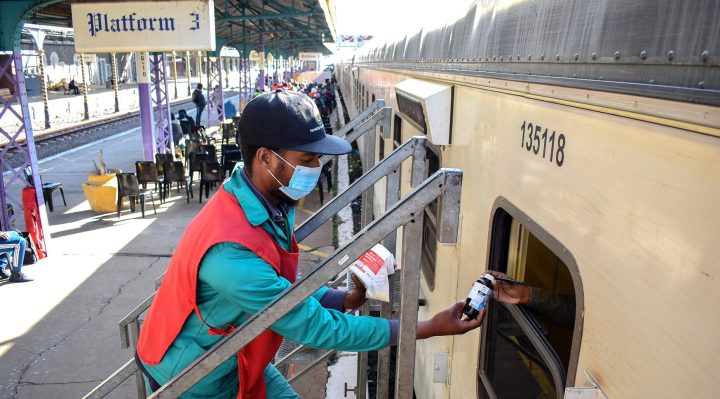
The 'miracle trains' have treated over 2 million patients since they were first launched in 1994.
The Transnet-Phelophepa Health Trains bring relief to remote communities in desperate need of primary healthcare services throughout South Africa.
Phelophepa, meaning “good, clean health” is the name of a train service comprising two custom-built trains that deliver primary health care to remote parts of South Africa.
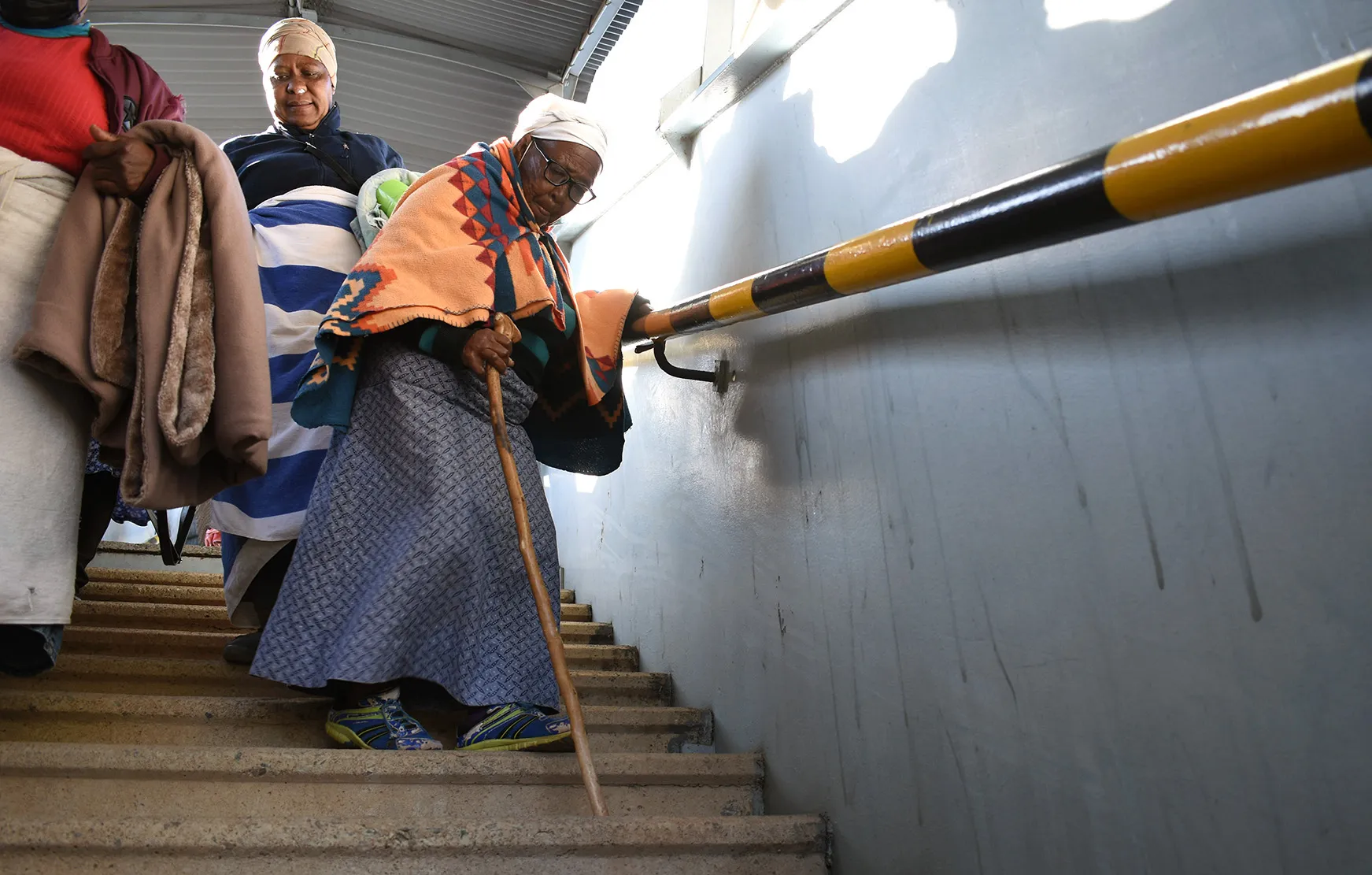
Lizzie Leepile walks down the station steps after she received her new spectacles.
(Photo: Emille Hendricks)
Launched in 1994 as a three-coach eye clinic project, the “miracle train” service has expanded to reach 375,000 people every year. In conjunction with the service’s outreach programmes, the trains have reached over 20 million people since 1994.

Optometry student, Luck Morifi conducts an eye test on Flora Pico, who received her first set of spectacles later that day. (Photo: Emille Hendricks)
The trains, a social investment project of Transnet with support from the Department of Health, travel year-round, spending eight weeks in each province.
With about 20 resident staff members using on-board, state-of-the-art medical equipment, the trains visit 70 stations.
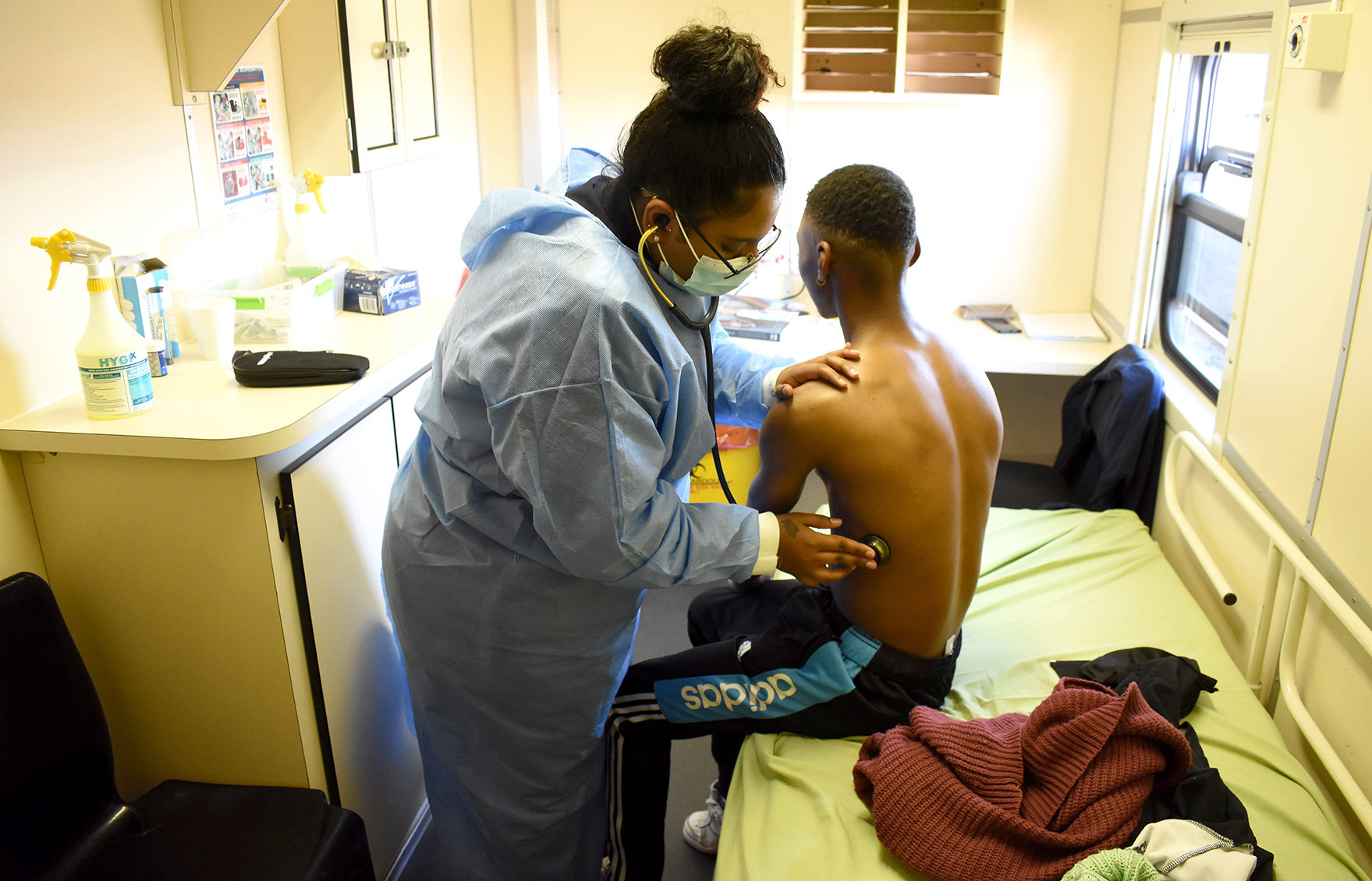
Student nurse Shayleen Gounder listens to a patient’s lungs. (Photo: Emille Hendricks)
All the medical sections are facilitated by medical students doing their practicals, under supervision.
The roaming medical facilities offer dentistry, optometry, pharmacy, psychology and other services.
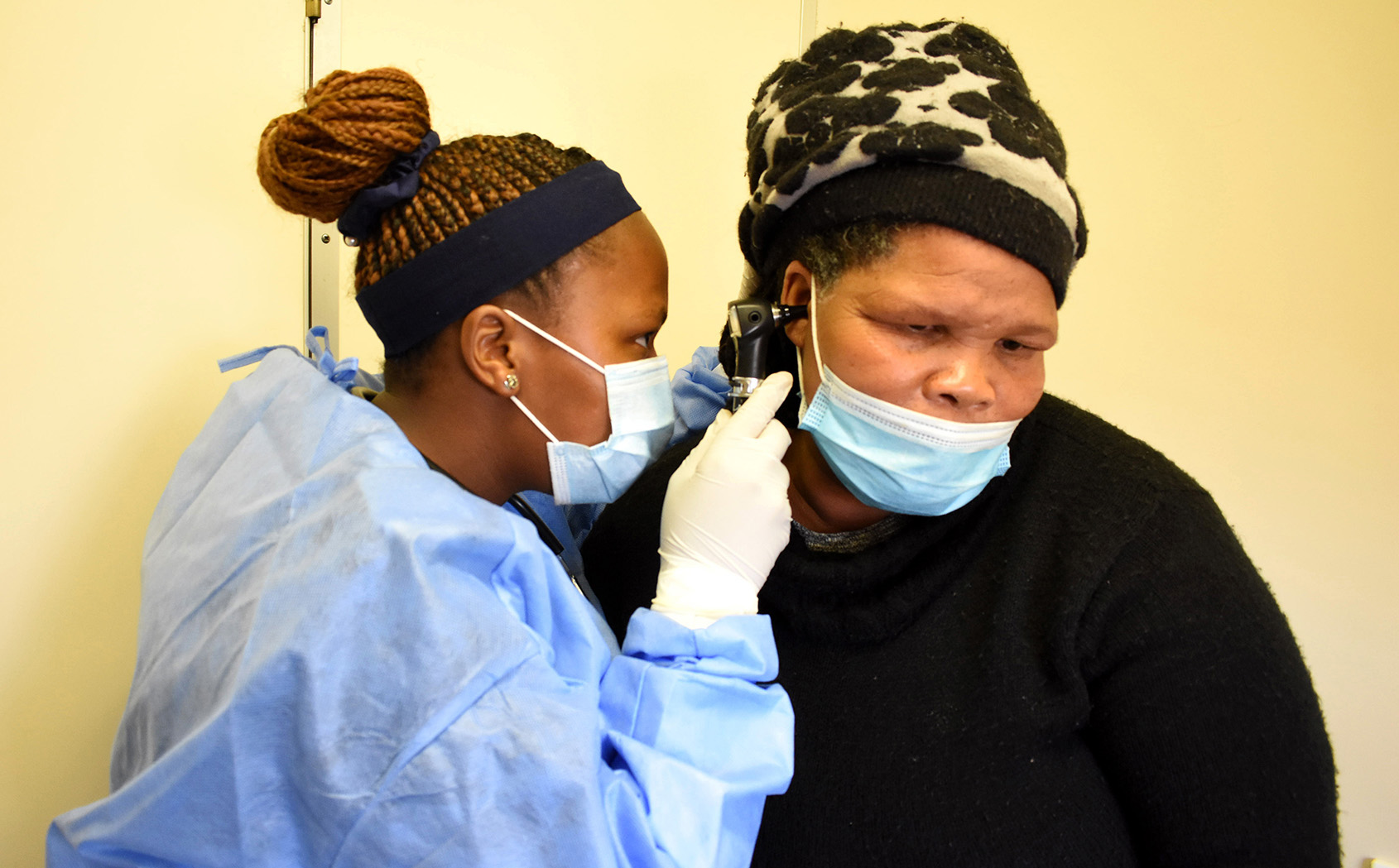
Sara Ballang has her ears checked by student nurse, Dineo Ndlovu. (Photo: Emille Hendricks)
In the Northern Cape, a train arrived in Kimberley early this month. The mobile hospital, which was parked at the railway station, was flooded by community members in urgent need of medical care.
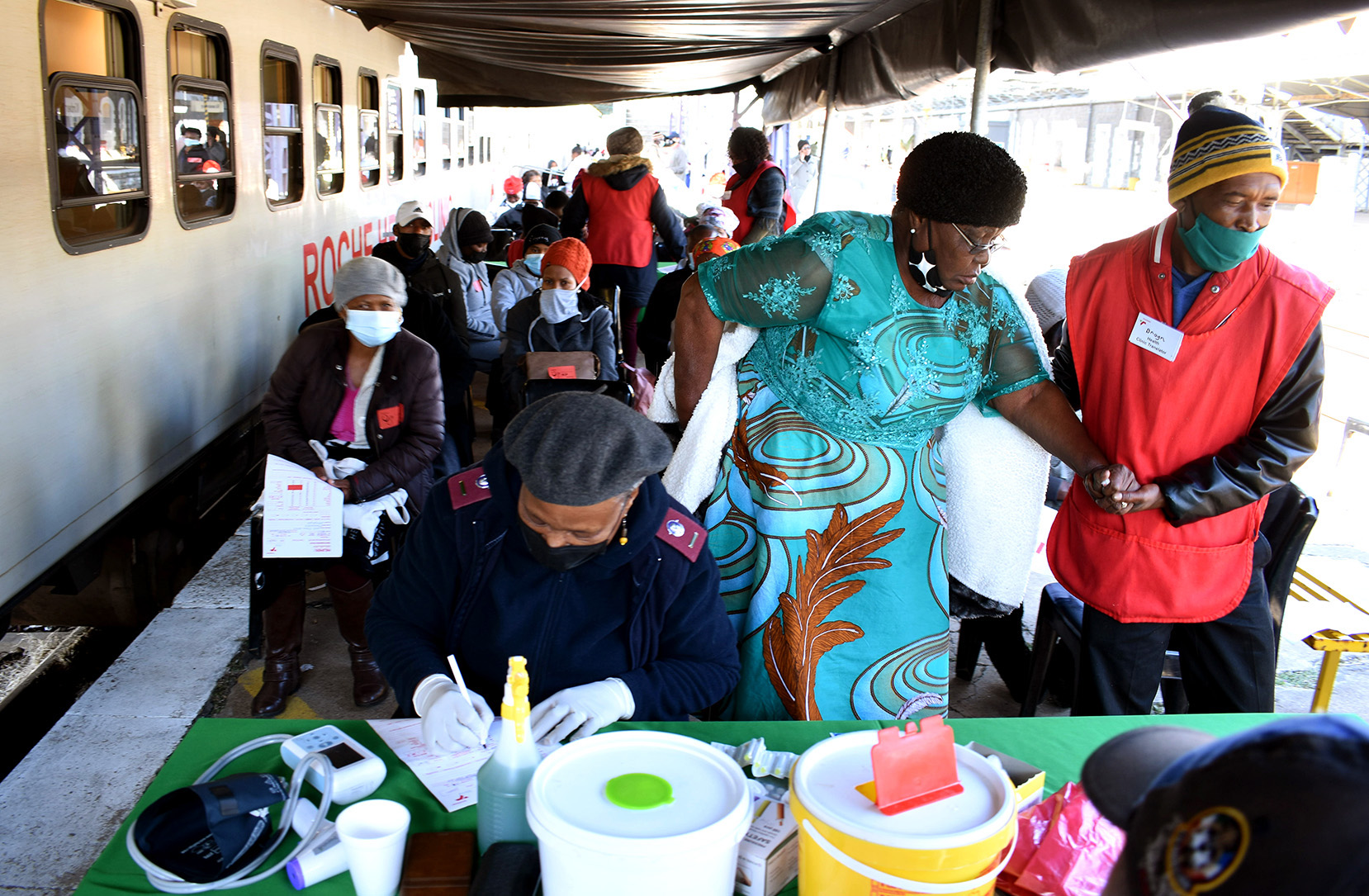
Rebecca Thipe is assisted by a nurse. (Photo: Emille Hendricks)
Some of the train’s medical facilities received on average between 100 and 120 patients a day. Patients were issued with ticket numbers as they arrived in the early hours of the morning while some slept at the station to secure their place in the queue.

A dentist sterilises her medical equipment after seeing patients. (Photo: Emille Hendricks)
The service has now departed for Upington and De Aar.
The 19-coach train generates its own power, with half used for the clinical services and the other half used for storage and accommodation for its personnel. DM/MC




















 Become an Insider
Become an Insider
Comments - Please login in order to comment.